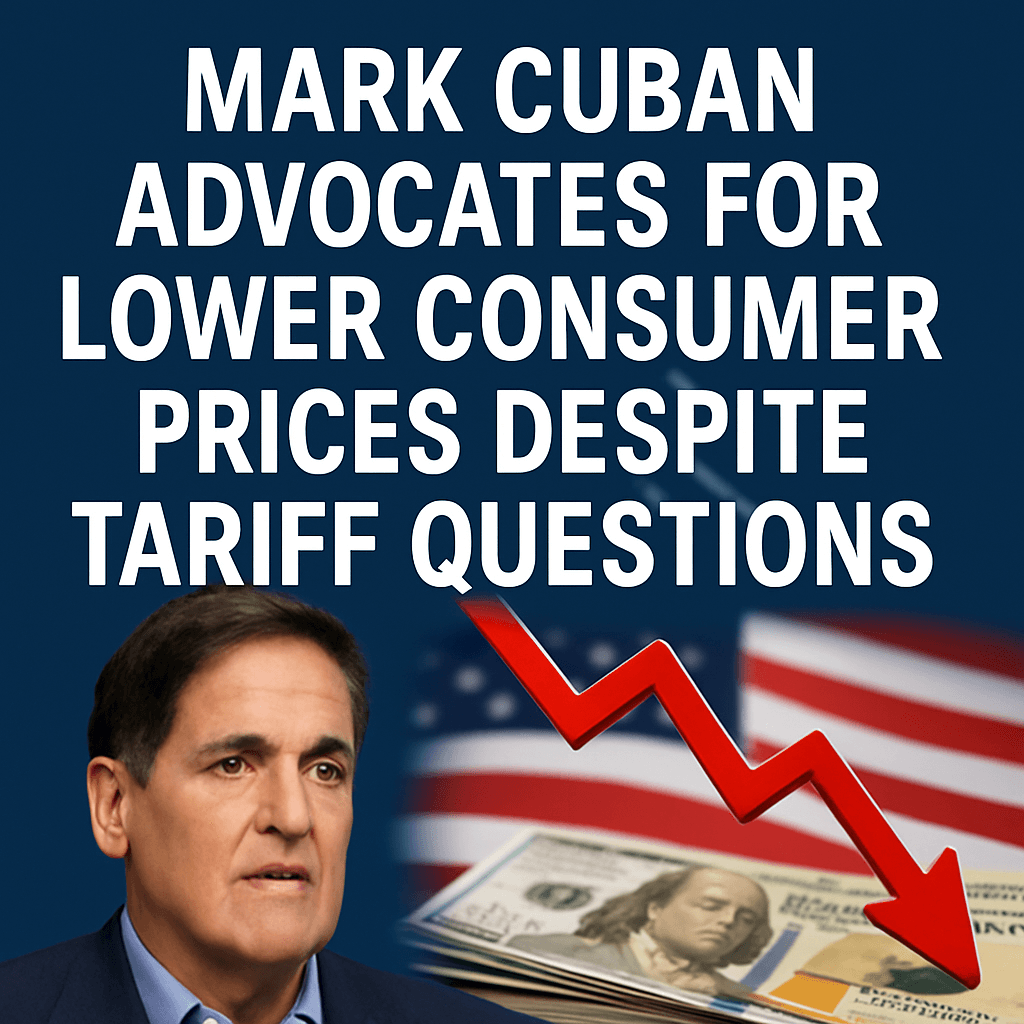Mark Cuban Advocates for Lower Consumer Prices Despite Tariff Questions

As many economists voice concerns over the inflationary implications of tariffs, billionaire investor Mark Cuban offers a counterintuitive prediction: the uncertainty surrounding these tariffs could lead to decreased prices for consumers. In a recent social media post, Cuban outlined that companies dealing with lingering inventory from stockpiling efforts may resort to significant discounts to recoup cash flow.
The Current Landscape of Tariffs and Supply Management
The U.S. economy has been navigating a shifting landscape due to tariffs initiated during the previous administration, with many businesses stockpiling goods in anticipation of rising costs. Cuban noted that, contrary to expectations of price surges, the inflation rate has not significantly increased. The U.S. Bureau of Economic Analysis reported that the Personal Consumption Expenditures (PCE) index showed inflation slowed to a 2.1% annual rate in April 2023, down from 2.3% in March. This deflationary trend is partly attributed to companies acting aggressively to deplete inventory accumulated ahead of tariff deadlines.
Inventory Management and Its Implications
- Preemptive Stockpiling: As companies anticipated impending tariffs, many accelerated the shipment of goods—sometimes up to three to six months in advance—to avoid incurring higher tariffs on imported products.
- Impact on Shipping Traffic: Consequently, U.S. ports reported a downturn in traffic, as firms had already fulfilled their import quotas to circumvent tariff implications.
- Price Adjustments: In this scenario, businesses are incentivized to lower prices to offload surplus inventory, which, as Cuban indicated, could lead consumers to benefit from temporary price reductions.
Financial Strategies and Risks for Businesses
While the prospect of lower prices might attract consumers, Cuban cautioned that this situation does not bode well for businesses in the long term. Uncertainty surrounding tariffs can lead firms to reluctant decision-making regarding pricing strategies.
Potential Risks for Companies
- Debt and Interest Costs: Companies that pulled forward inventory often resorted to financing options that could include unfavorable loan terms, leading to significant interest payments ranging from 10% to 20%. This debt burdens companies and restricts their ability to invest or adapt in other areas.
- Asset Valuation Anxiety: Firms grappling with fluctuating tariff regulations may face challenges in assessing the value of their inventory, prompting concerns about long-term asset viability.
- Market Dynamics: As Cuban warned, businesses may be forced to increase prices in the future to compensate for losses incurred during this period of clearance and high interest rates.
The Bigger Picture: Long-Term Economic Consequences
Cuban raised grave concerns regarding the prolonged nature of tariffs, suggesting the situation could lead to dire economic repercussions if businesses cannot stabilize their financial footing. He has previously expressed that continued inflation from tariffs could mirror conditions that foreshadowed the 2008 financial crisis. Such a scenario could entail significant implications for employment, consumer spending, and broader economic health.
Expert Opinions
Economists continue to debate the significance of Cuban’s assertions, arguing that while certain macroeconomic indicators may suggest stability, the challenges facing businesses, particularly smaller firms, could escalate if tariff uncertainties persist. The overarching consensus emphasizes the need for clear trade policies to foster sustainable economic growth and consumer confidence.
“If the new tariffs stay in place for multiple years and are enforced and inflationary, we will be in a far worse situation than 2008,” Cuban stated.